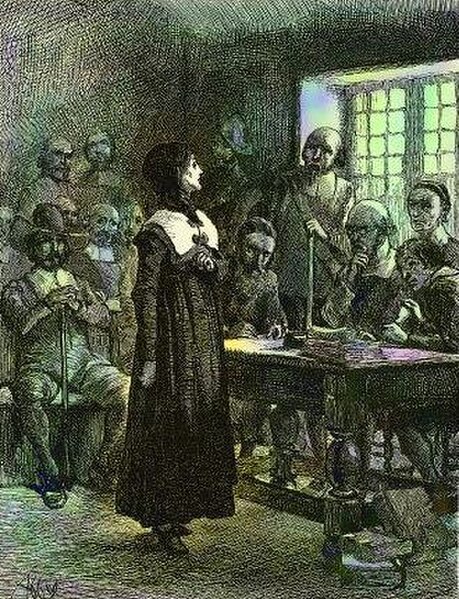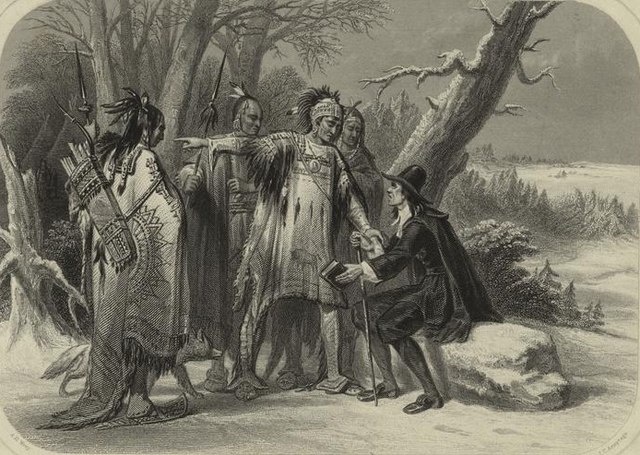Sir Henry Vane, often referred to as Harry Vane and Henry Vane the Younger to distinguish him from his father, Henry Vane the Elder, was an English politician, statesman, and colonial governor. He was briefly present in North America, serving one term as the governor of the Massachusetts Bay Colony, and supported the creation of Roger Williams' Rhode Island Colony and Harvard College. A proponent of religious tolerance, as governor, he defended Anne Hutchinson and her right to teach religious topics in her home which put him in direct conflict with the Puritan leaders in the Massachusetts Colony. He returned to England after losing re-election and eventually, Hutchinson was banned from the colony.
Portrait by Sir Peter Lely
Sir Henry Vane the Elder, portrait by Michiel Jansz. van Mierevelt
Engraving depicting the trial of Anne Hutchinson
Engraving depicting Roger Williams with the Narragansett Indians
Sir Henry Vane, known as the Elder to distinguish him from his son, was an English politician who sat in the House of Commons at various times between 1614 and 1654. He served King Charles in many posts including secretary of state, but on the outbreak of the English Civil War joined the Parliamentary cause. He was the third cousin of Francis Fane, 1st Earl of Westmorland.
Sir Henry Vane
Raby Castle, which became the principal northern residence of Sir Henry Vane From Jones' Views of the Seats of Noblemen and Gentlemen, (1819).
Thomas Wentworth, 1st Earl of Strafford, about 1639, portrait by van Dyck







